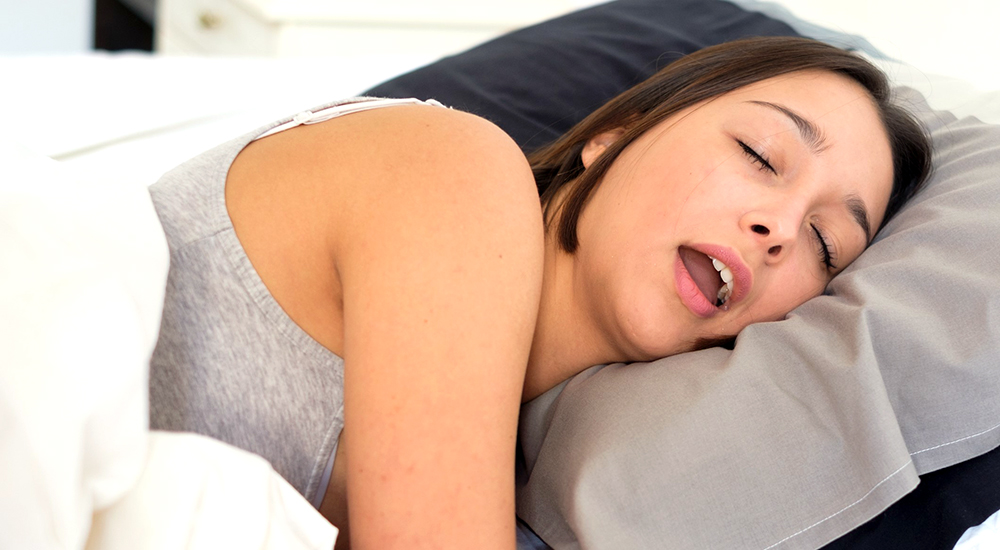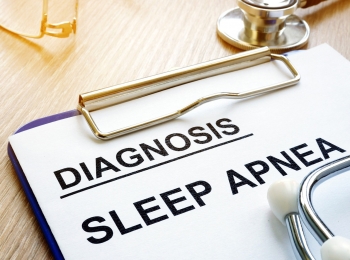How many times do you stop breathing while you sleep? Is it 5 times, 15 times or even 30 times? And for how long? Is it just a few seconds at a time or longer?
Probably not the typical questions you get on an ordinary day but these questions could save your life if you suffer from sleep apnea and don’t even know it.
You may be thinking to yourself, “I don’t snore, so I don’t have sleep apnea,” which isn’t totally true. Some sleep apnea sufferers report little to no snoring.
Some signs to look for to diagnose sleep apnea can be coughing throughout the night, dry mouth, headaches in the morning, memory loss, feeling tired throughout the day, and being chronically tired (not just tired because you watched that extra innings game the night before until 1 a.m.).
Sleep apnea can strain the heart and lungs
Sleep apnea, which is medically called Obstructive Sleep Apnea (OSA), is a condition in which a person’s airway sometimes narrows or closes while they sleep. OSA can disrupt sleep and decreased airflow can strain the heart, lungs, and other organs.
The strain can lead to problems such as high blood pressure, heart attack and stroke.
Everyone does stop breathing a little when they sleep, according to Irene Watson, medical nurse practitioner and OSA subject matter expert with the VA Providence Health Care System in Rhode Island.
“Everyone stops breathing a little bit when they sleep. If it happens five times or less per hour it’s considered normal. If it is five to 15 it is mild sleep apnea, 15-30 is moderate sleep apnea and over 30 is severe, “said Watson in a recent interview.
Sleep apnea can be treated
If you think you do suffer from sleep apnea, rest easy, it can be treated. Many Veterans who suffer from sleep apnea use a Continuous Positive Airway Pressure (CPAP) machine prescribed by their VA providers.
The CPAP machine is a small portable pump that sends air through a hose that is held over the nose and/or mouth by a mask. The air pressure widens the airway to help relieve the symptoms.
OSA can affect Veterans a lot more than they realize. Fortunately, help is out there for Veterans who may suffer from OSA. The VA New England Healthcare System outreach team recently published an in-depth multi-part video series about OSA.
The series covers a variety of topics including: What sleep apnea is, recognizing the signs and symptoms of OSA, realizing the dangers of OSA, links to OSA making PTSD worse, and VA disability benefits for OSA and treatments.
If you suspect you or a loved one has OSA, be sure to check out our videos so you can recognize the signs and symptoms and get help.
10/6/21 Note: There is currently a worldwide recall for Philips Respironics CPAP and BiPAP devices. For more information and frequently asked questions about the recall please visit the VA Philips Respironics CPAP and BiPAP Recall website.
Topics in this story
More Stories
The Medical Foster Home program offers Veterans an alternative to nursing homes.
Watch the Under Secretary for Health and a panel of experts discuss VA Health Connect tele-emergency care.
The 2024 National Veteran Suicide Prevention Annual Report provides the foundation for VA’s suicide prevention programs and initiatives.








Timothy Neff, contact your Senator ~ that is why we elect them to represent us. With so much ‘unknown’ about replacing recalled CPAP machines and with an estimated year or more to do so, Veterans should NOT have to suffer any more than necessary. The Health of every Veteran matters and there should be an immediate alternative to the recalled machines. I am Caregiver for my husband, who also uses the recalled CPAP; I watch him vigilantly to ensure his safety.
Wondering if anyone has more information about the Vivos appliance which you can get from your dentist that is supposed to help change your facial structure to open your airway.
I have severe sleep apnea. I have a clap. I also like to go camping. Is there a portable cpap machine that maybe is rechargeable? I am also a veteran.
I was diagnosed with obstructive sleep Apnea and I was denied compensation since I didn’t connect it to when I was in the Army. Since then I have been compensated for ptsd 70%. Can I connect sleep Apnea as secondary to PTSD? My sleep apnea has gotten worse I now wake up with a dry mouth almost every day and my memory is deteriorating.
Is there an alternative to the CPAP machine as I have a hard time sleeping with anything on my face. I know there is something that could be used internally. Does the VA offer this also?
I would use my cpap the VA issued me but it is affected by the Phillips recall. The VA says it should be ok to continue using it. I don’t feel safe using it because of the risk of cancer and other ailments. I have a family history of lung cancer. Besides if it were safe to keep using it then why was it recalled? I expressed my concerns to my primary care team, the cardiopulmonary department, and the patient advocate. It may take a year or more to get a replacement cpap. My sleep apnea symptoms are getting worse, I rarely sleep well if at all. I am purely exhausted. It’s been nearly 4 months without it so far. I also suffer from mental disorders and I am stressed from suffering. I hate to do it because the VA has been great for me so far but my next step is to contact my Senator.
If your sleepy during the day. You might set up a appointment to get checked for sleep apnea, or if you snore and are considered over weight. I have a CPAP Machine I put it on and with in 5 minutes my wife says I’m out like a light.
A note of caution to cpap machine users. Some Philips Respironics cpap machines have been recalled due to deteriorating foam in some of their machines causing a potential serious health condition. Please contact your local VA clinic and VA respiratory therapist to inquiry if your machine is included in this important recall. I am currently on the manufacture’s recall list to replace my Respironics cpap machine, however it may take several months to replace it with one that is safer to use.
what is this math
Good article, very informative ! Thank You